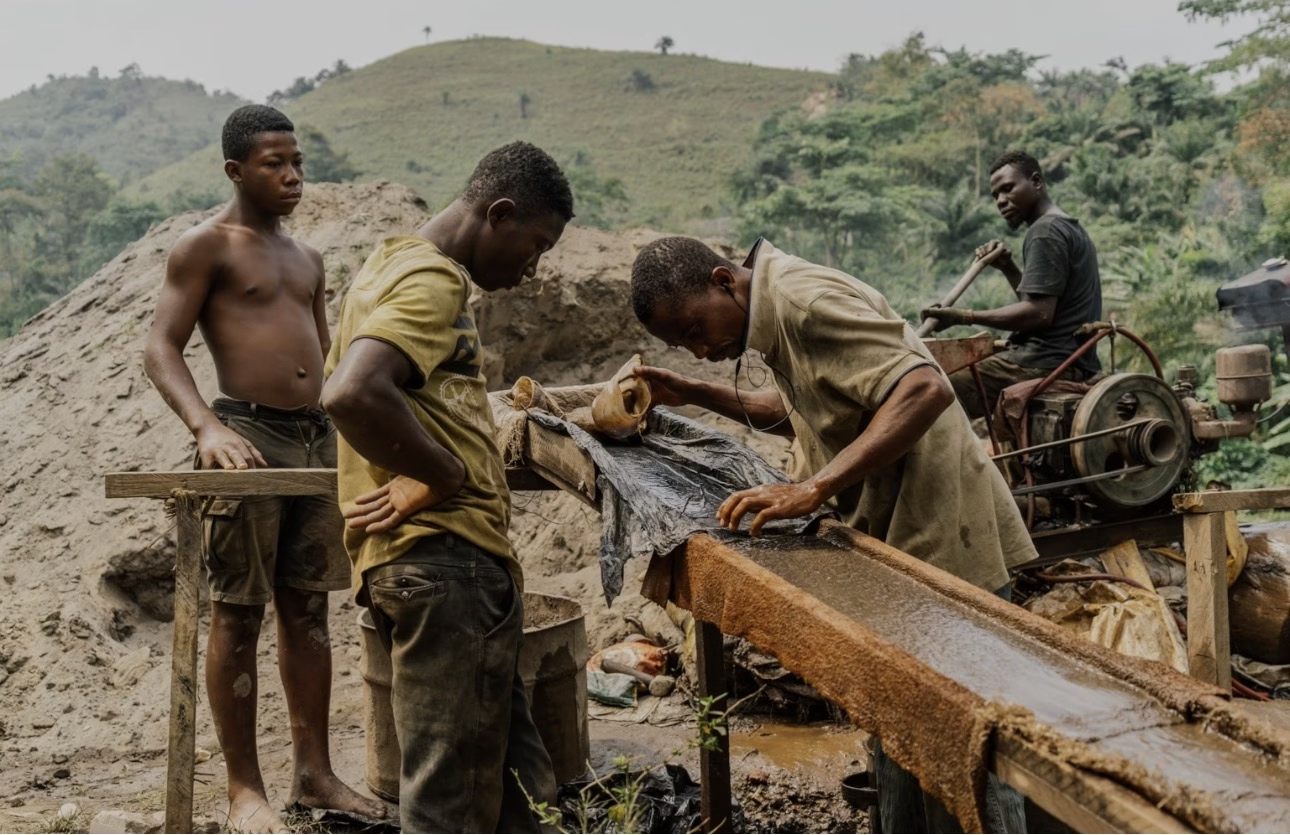Galamsey Is Racketeering — Ghana Needs RICO Laws and State of Emergency, Analysts Warn

Mounting frustration over the government’s handling of illegal mining (galamsey) has sparked renewed calls for a state of emergency and the enactment of RICO-style racketeering laws to combat what experts now describe as an organised criminal network deeply embedded in state structures.
Security analysts, environmental advocates, and governance experts say galamsey has evolved into a criminal cartel sustained by government officials, foreign financiers, and local collaborators, while the nation’s natural resources and water bodies face catastrophic decline.
⚠️ Galamsey as Racketeering — A National Crime Network
According to experts, illegal mining in Ghana now bears all the hallmarks of racketeering — a term used to describe organised, profit-driven criminal activity conducted through coercion, corruption, and conspiracy.
“We know galamsey is no longer about survival. It is an organised criminal industry with financiers, armed protection, political sponsorship, and foreign money,” one governance expert told Nsemgh. “This is why Ghana urgently needs RICO-type laws to dismantle the network — not just arrest poor miners.”
The U.S. Racketeer Influenced and Corrupt Organizations Act (RICO) allows prosecutors to target entire criminal enterprises, from financiers to enablers — a framework many believe Ghana needs to curb the galamsey syndicate.
🧩 Government Complicity and Gold Board Controversy
Analysts have accused the government of profiting indirectly from the very crisis it claims to be fighting. The establishment of the Gold Board, which regulates and purchases gold from local sources, has drawn heavy criticism for allegedly creating a financial incentive that discourages strong action against illegal mining.
“As long as the Gold Board benefits from buying gold, the government will find excuses to look away,” one environmental activist said. “Press conferences and committee reports will not stop galamsey — only decisive enforcement will.”
The perception of official complicity is reinforced by reports that some district and regional authorities provide protection or logistical support to illegal miners in exchange for money or political loyalty.
🌍 Communities Making Peace with Poison
In several mining areas across the Western, Ashanti, and Eastern Regions, local communities have reportedly accepted the environmental hazards as part of everyday life. Polluted rivers, chemical-filled wells, and barren farmlands have become normal, while children swim in contaminated waters used for gold washing.
“People have lived in danger for so long that they now support the very criminals destroying their environment,” said a former EPA field officer. “It’s a breakdown of environmental consciousness — caused by government neglect and misinformation.”
Residents in towns like Dunkwa, Prestea, and Akwatia told Nsemgh they have lost hope in government promises, saying every administration “talks tough and mines soft.”
⚖️ Constitutional Basis for Emergency Action
Legal experts cite Article 31 and 39 of the 1992 Constitution of Ghana, which empower the President to declare a state of emergency in situations that threaten public safety, health, or the environment.
“The destruction of our rivers and lands poses a direct health and environmental emergency,” constitutional lawyer K. Amoako noted. “If cholera or Ebola threatened our survival, we would act. The same urgency must apply to mercury and cyanide poisoning.”
Under such an emergency, government could temporarily ban all mining activities in hotspot regions, deploy the military for environmental protection, and suspend mining permits pending investigation and cleanup.
🔍 Call for a National Crackdown
Civil society groups, including IMANI Africa, OccupyGhana, and several environmental NGOs, have called for a multi-agency task force combining the efforts of EOCO, the Financial Intelligence Centre, the Police CID, and the Ghana Armed Forces to trace, arrest, and prosecute all those involved — from financiers to politicians.
“What we need is a national anti-galamsey RICO law,” said an activist. “It should criminalise the networks funding and shielding these operations. This is the only way to break the backbone of the galamsey mafia.”
🚨 The Real State of Emergency
Ghana’s major rivers — Pra, Offin, Ankobra, and Birim — are already biologically dead in many stretches, with turbidity levels exceeding 90,000 NTU (against a safe limit of 500). The Ghana Water Company warns that within five years, some treatment plants may shut down completely due to uncontrollable chemical contamination.
Meanwhile, health experts report increasing cases of mercury poisoning, deformities, and chronic illnesses in mining communities.
Nsemgh.com Analysis:
The galamsey crisis is no longer a fight over illegal mining — it is a battle against a criminal economic network that threatens Ghana’s sovereignty, environment, and public health. Unless government invokes its constitutional powers to declare a state of emergency, enforce racketeering laws, and cut off financial pipelines, the nation risks losing not only its rivers but also its moral authority.

